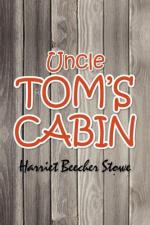|
This section contains 2,014 words (approx. 7 pages at 300 words per page) |

|
SOURCE: "Uncle Tom's Cabin: A Reappraisal," in The Centennial Review, Vol. XXXIV, No. 4, Fall, 1990, pp. 587-93.
In the following excerpt, DeCanio examines the philosophical questions underlying Uncle Tom's Cabin, suggesting that Stowe's treatment of religion and faith has as much relevance for a modern audience as her commentary on gender and ethnicity..
Uncle Tom's Cabin, the main work for which Harriet Beecher Stowe is now remembered, is enjoying a rebirth. With the received "canon" of American literature under attack as elitist, racist, and sexist, it is not surprising that an authentic anti-slavery novel, written by a nineteenth-century radical abolitionist woman, should be viewed with new favor. In truth, Uncle Tom's Cabin has been a neglected classic. What is ironic, however, is that the book is intriguing not primarily because of the gender of its author or the ethnicity of its characters, but because of the philosophical problem it...
|
This section contains 2,014 words (approx. 7 pages at 300 words per page) |

|


